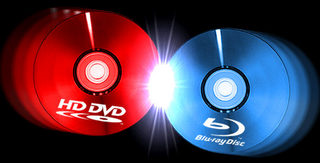
With the launch of every new search engine or cell phone, there is inevitably a torrent of exclamation mark-filled press releases and boasts proclaiming the new release to be REVOLUTIONARY!!! and LIFE-CHANGING!!! The truth, of course, is that they almost never are.
Still, such pleas might have been at least a tad bit convincing only a few years ago, when certain aspects of the technology world, or at least the public (and media’s) understanding of it were still in their infancy. That is, back when we were young and innocent enough to believe that a few cool features and a lower price was all that was needed to take on the iPod.
Today we know better. Here are the new rules of the technology industry. That is, the ineffable truth and gospel that will shape the tech world for the next decade and beyond. Companies that try to circument or ignore these rules will meet certain failure (or at least profit losses.)

THERE WILL NOT BE AN “iPOD KILLER” IN THE NEXT DECADE
About three years ago, Creative Labs pledged to spend $100 million in its campaign to knock Apple off its digital audio player high horse. Well, a couple of small country GDPs and a couple of very, very decent digital media players later (many of which, undoubtedly, trumped the iPods of their time feature-wise), and where is the company today? Nipping at the heals of SanDisk.

NO SEARCH ENGINE WILL BEAT GOOGLE IN THE NEXT DECADE
Lets put it this way, once your brand becomes synonymous with its field — to the point that people use it as a verb (“Let’s Google ourselves!”) — the barrier of entry to a new competitor becomes very, very high. And while other companies that have been blessed with such copyright-threatening name recognition have blown it (Xerox, anybody?), Google has been spreading its tentacles into so many sectors of the technology industry that we soon may be saying this about them and a whole lot more than search.

WINDOWS LAPTOPS ARE BASICALLY COMMODITIES
Sure, some CPUs may be a bit faster, have a bit brighter screen, or come preloaded with a Blu-ray or HD-DVD player. Some might even be superbly slim, or be super shiny. Still, the fact remains that as long as you have a Windows-based PC, it will be slow at times for no good reason, it will be bogged down by useless trial software that nobody wants, and it will have so many security and virus-related issues that anything you keep stored on that hard drive had better be disposable, because that computer basically is.

NO MATTER WHAT VERIZON SAYS, THE LG PRADA IS NOT AN “iPHONE KILLER”
Problem #1: It costs $100 more than the $500 iPhone, and is about one-thousandth as coveted.
Problem #2: It’s named after a very girly clothing company.
Problem #3: See Rule #1, replace “iPod” with “iPhone”.

IT REALLY DOESN’T MATTER WHO “WINS” THE BLU-RAY/HD-DVD FORMAT WAR
They will likely both die at around the same time, and not because one format is the victor. More likely, they will reach mutual obscolecense when ubiquitous wireless transmission of on-demand high-def content does to movies what iTunes and MP3s are doing to plastic CDs.

MAGAZINES WILL BE AROUND AS LONG AS DOCTORS HAVE WAITING ROOMS
They just might be printed on e-ink.

BUT BLOGS WILL KILL SOME OF THEM
Gadget blogs essentially sucked the air out of Cargo and Sync, and it’s only a matter of time before celebrity gossip blogs do the same to US Weekly and Star. The tabloid rags probably have a bit longer, however, as their audience is not as inherently tech and blog-savvy as you gadgetphiles.

PUTTING THE SAME PHONE OUT IN A NEW COLOR DOES NOT MAKE IT A NEW PHONE
Even if the color has a really cool name like “Minty Rectangle” or “Cream of Tangerine.”

INDUSTRY ASSOCIATIONS WILL ALWAYS BE AN ENEMY TO INNOVATION
Short-sighted industry groups (the fairly awesome CEA umbrella gets a pass on this) will always battle new technology — from Betamax recorders (don’t you even think of recording that game without express written permission from Major League Baseball), to DVRs, to MP3 players, to next decade’s super-holographic-light-image-sound machines. They will always pull the breaks on innovation for a few years, before it eventually breaks through from a critical mass of demand and inevitability (usually thanks to the porn industry). And the same industry groups will always complain that they cashed in too late.

Seth Porges writes on future technology and its role in personal electronics for his column, The Futurist. It appears every Thursday and an archive of past columns is available here.